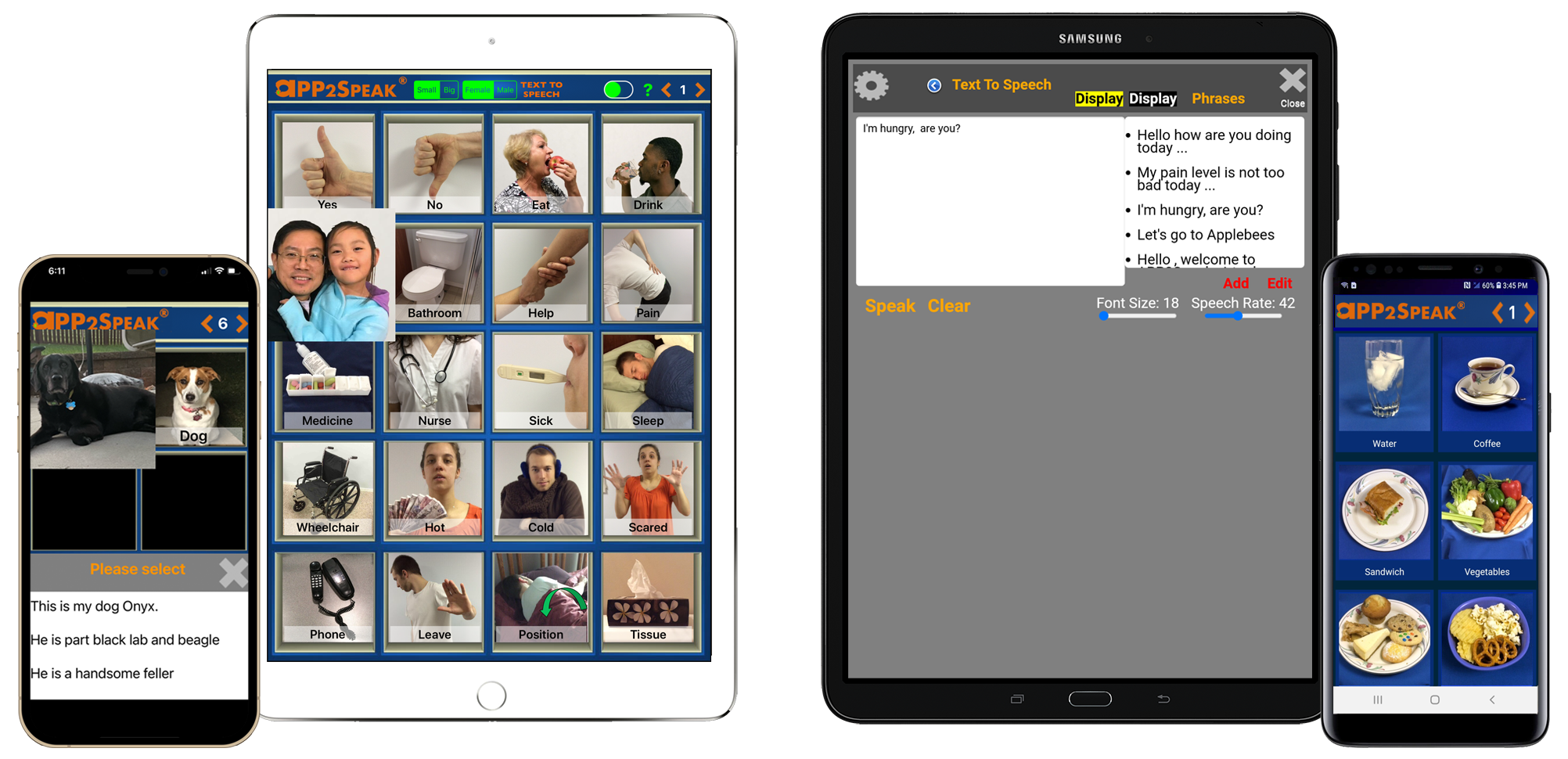
Text to Speech Apps: A Versatile Communication Tool for People Who Can’t Talk
If you, a friend, or a family member has challenges communicating through speech, today’s technology provides you with many amazing options. Speech language pathologists assist such individuals with communication through a variety of methods, including arming them with appropriate Augmentative and Alternative Communication (AAC) tools that allow them to express themselves and live full lives. One category of AAC tools is text to speech apps that allow people who can’t speak to type or select...
Laryngeal Cancer and Communication Tools for Patients Who Cannot Talk
Today I wanted to talk a bit about one of the more common reasons people lose the ability to speak: having a laryngectomy as a result of throat cancer. As a speech language pathologist, I often work with people who have been diagnosed with laryngeal cancer and have had to have surgery as a result. In this post, I’ll talk about what laryngeal cancer is, how prevalent it is, and some of the ways people can regain their ability to communicate after surgery. What is Laryngeal Cancer? The larynx,...
APP2Speak—Powerful Assistive Technology for People Who Cannot Speak: One User’s Story
Every once in a while, we get a story from an APP2Speak user that’s so good we just have to share it with you, so that’s what today’s blog post will be about. Before we share the story itself, here’s a little backstory: Joanna W., a college student in an Occupational Therapy Rehabilitation Techniques class at Pueblo Community College in Colorado reached out to me recently with an interesting request. She had been given a class project and was assigned a disability and a diagnosis (like stroke...
June is Aphasia Awareness Month: Do Your Part to Help People Who Cannot Speak be Seen and Heard
On August 30, 2009, at only 36 years old, Kelly Marsh, a successful businesswoman with roles at the Cincinnati Museum Center and, most recently, chief marketing officer at Thomas More College, suffered a debilitating stroke. One effect of the stroke was aphasia, a language disorder that affects a person's ability to communicate. In their memoir, Love Stroke (2016), Kelly and her husband Brad, a successful entrepreneur and businessman, chronicle the challenges the couple faced from both the...
Celebrating Better Speech and Hearing Month and the Role of Speech Pathologists in Battling Speech Disorders
In this Blog, I usually talk about a variety of specific issues faced by people who have challenges with their speech and the people who help them deal with these challenges (including caregivers and family members). But sometimes it’s good to step back and look at the bigger picture. And since May is Better Speech and Hearing Month (some organizations flip it around and call it Better Hearing and Speech Month, but I’m good with either title), this is as good a time as any! So, in this post,...
AAC for Autism: Using Apps for Nonverbal Communication to Help Autistic Adults Communicate Better
April is Autism Awareness month, so that makes this the perfect time to reflect on the question of how to support the communication needs of people on the autism spectrum. In this post, I’ll explore how AAC apps such as APP2Speak can benefit those on the spectrum who struggle with communication challenges. Common Signs of Autism in Adults First, let’s talk about autism in adults. While most people are diagnosed as being on the spectrum while they’re children, many young adults and adults,...
Returning to Work with Speech Assistance Apps: How Nonverbal Adults Can Reconnect to All Aspects of Life
Nonverbal adults who have difficulty speaking and communicating due to conditions such as stroke, brain injury, or physical disabilities caused by surgery (for example, a laryngectomy), may find it challenging to return to work or engage in social interactions. For example: The inability to communicate effectively can lead to a lack of confidence, difficulty in expressing ideas, and frustration. These challenges can be especially pronounced in jobs that require a lot of communication, such as...
The Bruce Willis Story Brings Awareness to Frontotemporal Dementia
This past year, America was shocked when it learned that popular actor Bruce Willis had been diagnosed with aphasia. This came out when the family released a statement on social media that Willis would be stepping back from acting due to the condition. More recently, we’ve learned about an even more specific diagnosis for Willis’s condition—frontotemporal dementia. Again, Americans were shocked. “Dementia?” they wondered. “Doesn’t that just affect people in their 80s and 90s?” Not really....
The Power of AAC Apps for Android (and Apple) Devices: A Customer Story about APP2Speak
Usually, I use this space to share information that’s helpful to our target audience—people who cannot speak for one reason or another (traumatic brain injury, disease, degenerative condition, etc.) But from time to time, I hear from one of our customers directly, and the story is just too good not to share with the world…so that’s what I’m doing today. I was recently introduced to one of our APP2Speak users (Bob) through a customer service inquiry from his best friend, Wayne.As you’ll see in...
A Curious Situation: When People Who Cannot Speak Won’t Accept Help
In my last blog post, I wrote about a challenging situation faced by many people who cannot speak—family members and caregivers who don’t help as much as they could or should. Today, I want to address the opposite situation: when nonverbal adults DO have the people and tools available to them to help them communicate, but for one reason or another, choose not to take advantage of those opportunities to their fullest. It may seem strange to think that someone who has lost the ability to speak...


